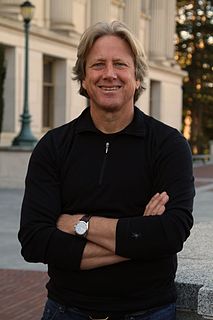A Quote by Natalie Merchant
Literature gives us a window into other people's experiences in other places, in other times, so I thought it would be really interesting to investigate how different people had written about motherhood, and childhood.
Related Quotes
Literature presents you with alternate mappings of the human experience. You see that the experiences of other people and other cultures are as rich, coherent, and troubled as your own experiences. They are as beset with suffering as yours. Literature is a kind of legitimate voyeurism through the keyhole of language where you really come to know other people's lives--their anguish, their loves, their passions. Often you discover that once you dive into those lives and get below the surface, the veneer, there is a real closeness.
All our thoughts and concepts are called up by sense-experiences and have a meaning only in reference to these sense-experiences. On the other hand, however, they are products of the spontaneous activity of our minds; they are thus in no wise logical consequences of the contents of these sense-experiences. If, therefore, we wish to grasp the essence of a complex of abstract notions we must for the one part investigate the mutual relationships between the concepts and the assertions made about them; for the other, we must investigate how they are related to the experiences.
If you have that spark that inspires other people, if you have a spark that gives resources to other people, that shares in really collaborative fashion, a spark of wit that kind of tells a story that gives people novel perspective of something, that's the kind of charisma that really leads to lasting power. It's not the kind of charisma that's seductive and self-aggrandizing. It's really a sort of a kind of social energy that really brings about the best in other people.
I have ventured out and written about real-life experiences that I haven't gone through myself, but I've known people to go through them. In the past, I've always written about my experiences and people related to that, but there's a lot of other things that I've never written about that people have gone through.
Acting is a job you can learn a lot in. You get to play lots of different characters with different professions and different backgrounds; they come from different places than you do, so it's really fun when you're immersing yourself in that world of that person to learn about how other people's lives are.
I'm not trying to be mean. You [ Nicholas Kristof] have written about climate change. You're really concerned and you've thought a lot about the suffering of people in other countries. It doesn't seem like you have thought that deeply about the suffering of your fellow Americans. You don't have the solutions say as you do for global warming. And my question is: Isn't it always easier for the elites to identify with abstractions or poor people in other countries and kind of ignore their own country men. I have noticed this. Have you noticed that?


































